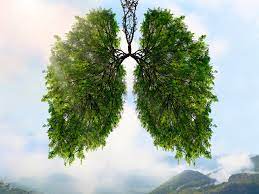Respiratory Diseases Caused by Climate Change
May 20, 2023 Health Care Environmental science
This paper discusses the current and emerging respiratory diseases caused by climate change. The paper also examines the effects of global warming on air quality and how it can lead to these illnesses.
In recent years, research has shown that climate change is linked to a number of respiratory illnesses such as asthma, allergies, chronic obstructive pulmonary disease (COPD), and other lung-related conditions. This is due to the fact that increased temperatures in the atmosphere have an impact on air quality. Poor air quality can cause inflammation in the lungs which leads to increased risk for respiratory ailments.
In addition, increases in ground-level ozone from burning fossil fuels are another side effect of climate change that can worsen existing lung conditions or cause new ones to develop. Another key factor in the development of respiratory illnesses is increased wildfires, which are accelerated by climate change. Wildfire smoke contains harmful toxins, pollutants and irritants that can enter the lungs and cause damage to them.
Respiratory Diseases Caused by Climate Change
Climate change also affects how allergens such as pollen interact with our environment. Higher temperatures result in higher concentrations of plant-based allergens like ragweed, making conditions for allergy sufferers worse. Increases in mold spores have also been linked to climate change due to shifts in precipitation patterns caused by global warming.

Another factor to consider is the possible spread of airborne diseases, such as tuberculosis, due to climate change. Warmer temperatures and increased rainfall can promote the growth of bacteria, which can then be transmitted through the air leading to respiratory illnesses in humans.
The overall impact of climate change on our health is a serious concern. Respiratory illness is just one example of how global warming may affect us in ways we are only beginning to understand. As such, it’s important for everyone to be aware of the dangers and take steps to reduce their carbon footprint in an effort to protect public health.
